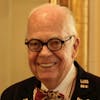Redefining Careers in Hospitality - Amanda Gray & Raul Moronta, Remington Hospitality

In this episode, Amanda Gray, Chief Human Resources Officer at Remington Hospitality, and Raul Moronta, Chief Commercial Officer at Remington Hospitality, discuss the results of our recent survey on how people outside the industry view a career working in and with hotels - and talk about the initiatives that Remington is doing now to support their people and create more opportunities for everyone.
- Read the research: What people (really) think about working in hotels today
- Follow Amanda on LinkedIn
- Follow Raul on LinkedIn
- Learn more about careers at Remington Hospitality
Join the conversation on today's episode on the Hospitality Daily LinkedIn page.
Hospitality Daily isn't just a podcast! Every morning - Tuesday through Friday - I summarize the stories you need to know as a hospitality professional in a short email. Read today's issue and subscribe here.
Josiah:
What are the career opportunities in hospitality today and how can we communicate those to better attract talented people to join us in hospitality? To provide insight on this, we're joined today by two leaders from Remington Hospitality: Amanda Gray, Chief Human Resources Officer, and Raul Moronta, Chief Commercial Officer for the company. In this episode, we discuss the results of our recent survey on how people outside the industry view a career working in and with hotels and talk about the life experiences and initiatives that Remington is doing now to support their people and create more opportunities for everyone.
So, Amanda, I'm going to pass it to you first, and I'm curious, as you've kind of looked through some of the findings of the study what's something that stood out to you initially as you're going through this?
Amanda:
Absolutely, and thank you so much for having us here today, Josiah. We're really excited to walk through the study findings and some of the things that jumped out. I would say the first thing I saw as I looked at the results that you gathered was it's maybe common sense, but the fact that pay is still incredibly important. Paying fair and equitable wages to our team is something that is considered table stakes, and I think sometimes we may have lost our way as we went through trying to provide a lot of different perks or benefits that differentiated us. If we aren't always investing in pay so we're paying fairly, people aren't going to come, no matter what kind of perks you have as well. So I consider the wages and competitive pay is just table stakes that we have to constantly stay on top of, constantly work with providers and partners that are helping us stay competitive there.
Josiah:
Yeah, and I think on that point, Amanda, I know, speaking with you and your teams before you have a very exhaustive approach to recognizing what are the options people have in the market. It's obviously not just other hotels, but it's any employer, any industry, and a lot of data goes into that. And so it's a little bit less of saying the industry is paid at X amount and more of a holistic view right and to what are all the options and what pay is out there for people, for job candidates.
Amanda:
Good point. Yeah, it's not. It's while pay is important, it's not just about that base salary. You know there are so many different things. You mentioned innovation, and that's something I think our industry gets dinged on a little bit, that we're not as innovative as we need to be, and that is something that we strive to constantly be listening to new ideas, whether it's, you know, people in the hotels coming up with new ideas that we should be looking at, and one such thing that impacts wages is actually looking at like tipping apps, for instance, as the world gets less and less cash-oriented, a lot of times customers are asking, the guests are saying, as they hop out of the car at the valet, you know, oh, I didn't have cash, is there any way I can Venmo you? And so that was an idea that came directly from our hotels of how can we get more forward and progressive thinking when it comes to that because our guests are asking for it and it would be helpful in overall wages. But then it's going beyond just the wages to, because people are you know, they're counting the cost of their benefits and the cost of their vacation time, that you know how much do I get and am I able to take it and feel like I can disconnect and relax. So we do try to really put a package together and refer to that as the total rewards that someone's getting in the position and make sure that we're always adding to that year after year over year. You know, we do an annual survey where we get feedback from all our team members and say what's important to you about your benefits. Is it, you know, a wider variety of a network? Is it a cheaper cost in your deductible or whatever it might be? But we get that feedback and continually tweak the programs to add in more. One thing we've seen over the last three years especially is more reliance on better mental health resources. I think it's something that perhaps pre-pandemic there was a bit of a stigma. People weren't engaging as much and we found that they wanted to, just didn't know how to. So we put in a lot of different options really easy options of how they could start to engage in mental health resources, and we've seen utilization skyrocket for that. So that's one thing that we're really proud of.
Josiah:
That's great. You're looking at people holistically and understanding how we support our people, and for me that speaks to looking at this as a career and not just a job. And I wonder you know we were touching on this in the study a little bit, I think among respondents the views on hospitality as a career were mixed. I think some of that could be an education or perception problem, but I'd love to ask you and then, Raul, I'm going to ask you the same question because I know we've talked about it previously, but I guess just around this notion of a career path versus just a job, how are you thinking about this as you're leading people at Remington?
Amanda:
Oh my gosh, I'd love to talk about that, because I do see so much opportunity and there are so many examples that we celebrate all the time. You know, and you'll have two things. You have somebody who may start as a valet and they have found their lifelong passion and dream. That's what they want to do every day and they love it and want to do that forever, and that is beautiful. If they want to make a career out of that and they feel like they're growing and they're being rewarded, they want to be rewarded, that's great. And then you've got so many other examples of those who start out as a valet and end up as a general manager or a divisional vice president or executive vice president as well. Most of our executive leaders started out in also very humble beginnings. I started out in a hotel, as a hostess in a restaurant, and now I get to lead the people function for Remington. So the skills you can gain are skills like no other. I think in hospitality, one of the things I think is a big differentiator is knowing how to deal with people, and how to manage conflict. It builds your emotional intelligence, something that is a huge differentiator If you have strong emotional intelligence and you get to leadership roles, you're going to be much more successful in that role and it's a basic skill that you learn as you work your way through different hotel positions. And so breaking that idea that I'm just a front desk agent and that's all I'm ever going to be or I'm just parking cars I just do it over the summer because I make good money and tips or whatnot and seeing that there's a whole career there, like I was intrigued by your survey that so many people were interested in the fact that there are IT jobs in hotels, that there are HR jobs in hotels like there's all this other stuff that goes into building this guest experience, and I think it's our responsibility to get that out there and show them the career path. I'll also say that we realize this in our engagement survey as well, since you know, listening to our employees is so important and what we heard is they want more of that career path, and so we started a committee to talk to our people in more detail and say what is, what does that mean to you? What does a career path mean? What are the steps you want to see? How do you want us to help you be ready for that next step and help you succeed at the next step, and we're building that right now. We're saying what are the career paths from all the different roles and all the different places you might want to land, Because we also know it's unique for everybody. Not everybody wants to be the GM. Some people may want to stick in food and beverage because they're really passionate about that, but what are the different paths and what are the different ultimate roles people can land in and then communicating that out to all of our associates. So those that start while they're in high school or start while they're in college aren't looking at it as just for a way to, you know, help pay the bills while they're in school, but something they can continue afterwards as well.
Josiah:
Well, your focus on listening to your associates across the business really stands out to me, because I think it is. There's probably no better starting job than in hospitality, as you mentioned. You learned so much about people engaging with people and ideally, we want to see all those talented, empathetic, caring people stay in hospitality. But even if someone decides to start and then they do something else, there are so many benefits in any walk line of work. But you also spoke about the longer-term career potential and I think that is that is something that we need to talk more about as an industry. Raul, I know you and I have talked about that on a number of levels. You know you both are, you know, kind of at the top level of leadership within hospitality. You've seen how a career plays out in hospitality. I guess my question for you, Raul, is it feels to me, you know, in other parts of the world a hospitality career is maybe looked at a little bit kind of higher than here in the US where we did this study. But you know you, you oversee, you know commercial operations across. You know your business that's not just US based and now you're expanding the Caribbean and beyond. How do you think about a kind of career in hospitality and what's your take on this?
Raul:
You know, great question. So, as you know, I went to a hotel school. I graduated from then my master's, my wife, is in hotel school. You know we met in a hotel school. We'd been married for almost 30 years. It's hard for me not to think about hospitality career. You know and I think I joked at some point that I've only worked in two industries I worked in hotels and I work for Blockbuster and I only have a choice now, I guess. But the reason why I'm very passionate about is interesting that on the study, 30% of the people felt that they did not know whether hospitality was good, a good career choice. And I will tell you three stories. One, the three general managers that were recognized at a leadership conference. One started as a Bellman, the other one started as a driver and the other one was a breakfast attendant in 2018. Now, think about that. And the reason why I feel very passionate about is one of the misconceptions of the study or the people within you know, obviously that was surveyed is that the entry point is your end point and your entry point. Yes, it could be a line level role, whether it would be a frontage, a German driver, housekeeping, whatever the case it is, but I would argue that no other industry offers you the upward mobility that hospitality does. I actually graduated from from hotel school. I studied as a night audit and the reason why I started as a night audit is because I was going to college and I was going to college and I study overnight and from there my career accelerated. Within 10 years I was front of his manager and then again, you know, within 15 years and I was in a regional role. So that is the part that I think is very important. Think about, for example, you can be in this industry you can work at in for 15 years for 15 different hotels and never have the same role again. That upward opportunity that you can go from being in operations to then move to housekeeping, to then move to accounting, to reservations, to engineering. I mean that the diversity of opportunities is something you do not see anywhere else. So think about you know what we're talking about hospitals, right In hospitals, if you work in ER, yes, you are going to have a varying schedule and it's going to be hard. Most people I would argue that are probably love ER, but likely it is that the vast majority of the jobs in the hospital do not have the same roles, do not have varying schedules and things like that. So those are some of the misconceptions that I think we need to work hard on and be able to talk through people. And I think Amanda says it right we need to start at the high school level and be able to start educating people, to say this is a career. Yes, you may start as an entry job, as a cook in the kitchen, whatever the case it is, but you can become a chef, not different from the Rich Garcia which actually started that way. Right? Those are the things that I get passionate about, that I get passionate to say we are in a hospitality business because we love it, because we know that at some point we can decide what to do. Do we want to be in a bigger hotel? Do we want to go to a resort? Do we want to go to an independent or a branded hotel? That diversity.
Josiah:
I think that diversity even in your own career experience for, how I know, we did some work around educating the industry and artificial intelligence and you know you are the chief commercial officer you're overseeing a lot of different functions, but you're able to speak deeply to this. You know cutting-edge technology. At the same time, you had a deep knowledge of the human implications because you've worked in in all these different jobs and functions, and so I think in many industries you pick a lane you're in the marketing lane, you're in the technology lane, and that's all you do. But I feel like there is a depth of understanding that comes from some of this work. That, or the exposure you get in hospitality, and I wonder if you could speak a little bit more about this career concept. You know, Raul, because you know there's many out there that are looking for flexibility From their work was interesting to me from the study, though, is actually irregular working hours Topped the list of concerns for people working in hotels, so there's actually a lot of Concern about that. Maybe people wanting more stability You've spoken before about. You know, as careers progress, sometimes it unfolds a little bit differently than when you start, and I guess I'd be curious to get your take on this and I'll go to you, Amanda. But as you think about flexibility, career progression, you know kind of. How are these concepts related in your view?
Raul:
You know, great question similar to, again, hospitals the vast majority of the hospital work it is not, you know, changing shifts and things like that. There's a lot of different decisions. Right, your, your engineering road, you know, do not change. Or you know, sales of marketing and revenue management and things like that. There's a lot of different aspects of it that do not have these Scheduling flexibility is going that way, right. But, for example, you know I would tell you my own story. So I started as, again, I was working in operations, front office, whatever the case it is, at some point I was starting a you know family and and need a little bit more Flexibility in there and I joined gravity management. That is how I actually joined. I was working so front of his manager. Gravity management provide a little bit more stable role. So, but again I think I go back to your entry job. It is not where you're going to end up and I can guarantee you that if you were to go to a bank, that for you to be General manager of that bank, it will take you far longer than it would be for you to start as a front desk agent development and Become a general manager of that hotel. I could argue the same thing about other industry. So, for example, fast food restaurants, let's say, you start at, you know, in McDonald's, right, at the end of the day, from the beginning of the agent At the, at the front on McDonald's, to being the manager of that store. There's not that much of a difference, right, in terms of, yeah, you can probably have, let's say, multiples of two, three of your salary. In hospitality, being a front desk agent at a Hampton Inn is very different than being a general manager at a thousand Ruebka mentioned hotel. The gap in growth that you can have within the same industry, it is Multiple, it is significantly higher the opportunities that you have, and not just that. But again, you know, one of the things that actually talks about is the perks, right? So in hospitality, we have a lot of perks, you know, and Amanda and I, virtually, were just talking about that. We have we're launching a program for RemStay, but we'll be able to offer, basically, employee rates to all of our associates, regardless of brand. So again, we have about 120 hotels. You'll be able to actually get, you know, mary Hilton, high within our organization to be able to do that. Those are perks that you don't get anywhere else.
Josiah:
So I have had the luxury, I guess, of traveling all over the world and Huge People were actually saying they would choose a career in hotels, you know for specifically, you know discounted room rates If all other factors were equal. And so I think it's kind of, in a sense, hospitality careers are an easy sell and that people love travel generally, right. And then kind of, there's this opportunity for people like yourself to get creative, which you are with this program, right, and you so you're saying you rarely pay the rack rate, you're getting these discounts, and that that's kind of a key opportunity here and something that you're investing in for your team.
Raul:
Yeah, I, you know what Well get. Not only do I get upset about paying full price, but I get upset enough truth comes out. So my kids, unfortunately, have had the benefit of that where, yes, they they they have a very distorted view of what hospitality is or what these day in hotels. But you know, those are some of the great things that ends to these day my kids would go and say, hey, by the way, I am going to, you know, Boston, I am going to LA, I'm going somewhere else and I'm gonna have a reservation. What is it? I need an employee discount. Now, think about you. But you, funny enough, we all joke in the hospitality that we become, you know, our families, travel agents, because they call us to say, oh, by the way, I'm traveling here, I need you to get me an employee discount, right? So, but you have, basically forward again, additional benefits for you and your family and I think, again, those are some of the things that are that we can offer. You're right, there is going to be variability on the schedule. I think, again, that happens on the lower levels but also happens that, you know, I. You know there's a saying that there's no such a thing as a great friend is agent, because once it become great, you promote it and that's what happens. Most friend is agents are probably in their roles 18 months maybe, unless you want to be there for a long time but they get promoted to supervisors and managers and things like that, and then your schedule is very different at that point. But I think it. You know, we, we tend to hire somebody for a role I have an open role in, in whatever department it is Somewhere along the line. We find those people are talented enough what we need to provide in a career, and in most cases I work, for example, for one company for 15 years. I I had probably about nine different jobs. I why? Because at some point, you know, in the, you know, 18 month, two years, I get promoted to something bigger and better, in a different city, to different town, whatever the case it is, and it was my choice to figure out what I wanted to do, right? So so that option of I'm going to enter and I may enter at a at an entry point, but again, I am going to have limitless possibilities with regards to how I, yeah, when I, if you see these two concepts of career opportunities and flexibilities could be somewhat related.
Josiah:
Amanda, I'd love to go to you and kind of get your take on on this topic a little bit, because, yeah, I mean, I think some people do want total flexibility, but others it's a stage of life or it's something else, and it seems that you and your team invest heavily in listening, you know, to your associates. I'm curious what you're seeing, hearing, thinking about, I guess, as it relates between flexibility and kind of career growth opportunities.
Amanda:
Yeah, most definitely similar to some of the things Raul was saying. You might have seen me nodding and smiling because there's so many Neat programs that are being put in place. I think, as we look to provide that flexibility, it is with this idea that you're right. We hire based on attitude. We hire based on the ability to learn new information. We hire based on those people, skills, those things that are harder to teach, and then we can teach anything within the hotel and that's where you get to the levels where you have more flexibility and we invest in a couple of things. One is, for instance, the apprenticeship with AHLA. We have found that to be Incredibly useful, a huge growth driver for somebody's career if they're willing to put forth that effort. You know that that work ethic and have that Right attitude about wanting to learn and grow themselves because we see something wonderful in them that we want to foster and help them grow their career with us. So we're setting a goal to have more Apprenticeships in the AHLA program than we've ever had before and we're expanding into the engineering side of the AHLA apprenticeship that they've just started to offer, knowing that that's a really niche skill set that's hard to find people with that skill that can help the entire hotel operate so smoothly. So we're really investing in that, in addition to the general manager and the culinary program that they offer, and then thinking about that flexibility. It is very interesting having the career path, having the learning and development opportunities, and then the career path to help you make good on what you've learned. We're also expanding into where we recruit people. So we're starting we it's a little bit early to brag about this yet, but contact me in six more months, hopefully, we'll be there. We're starting in high school because we realized we heard, you know, through the pandemic a lot of people ran away from the hotel schools like Raul had graduated from and said like I don't think Hospitality is going to be stable enough for me in my career. So we know we have to go back and resell hospitality to people and so we're starting with a local hospitality Academy it's like a magnet school for hospitality that's in Dallas and seeing how can we encourage people to stay in hospitality and give them real-world opportunities to start quite young in their careers with our organization. And then, similarly, you talk about stability. So our military recruiting initiative is getting Re-energized. I'll say there's two points to that one is you have a lot of military that are traveling all over and they need stability, oftentimes for their spouses that are trailing with them as they travel across the country, and so we're working with an organization called mCEP to help ensure that those trailing spouses can find roles quickly and if they can travel, you know, from Remington hotel to Remington hotel and have that stability of that same employer as they move with their spouse who's supporting our country, that's just an absolutely fantastic you know a solution there. And then we're looking at getting people out of the military as well and helping them transition into civilian careers Through another organization that takes it's about a year to get set up with them, but it helps us identify people who may have learned you know how to cook in the military, learned a ton about engineering in the military, and then how can they put those you know skills, knowledge, experience to life. Back on the civilian side, there's a group called skill bridge that helps us link up with veterans who are making that transition, and so it's about getting people from all different walks of life and points in their career, giving them that opportunity, investing them, investing in them with the training, learning and development you know, for instance, like we offer a LinkedIn learning license to all of our associates who are interested in growing themselves, and we've recently started curating the content on LinkedIn to say, if you're learning to develop your leadership skills or your conflict management skills or whatever it might be, here's some classes we'd recommend and we're finding a lot of interest and success in that, because we do believe everybody shows up wanting to do a great job. So if we put the right resources out there, we're going to help them be successful, feel better about their careers and they're going to want to stay and grow with us.
Josiah:
That's amazing. So it's everything from where you're looking to bring people into hospitality to helping them on that journey. And I think, if you kind of back to what you mentioned around recruiting talented people that are in the military or a partner of somebody in the military coming out of the military, I think it's hard to think about that without thinking about your SVP of beverage and food, Rich Garcia, who is an amazing story to tell and it's building an awesome team, an organization there, obviously with deep experience. Being a veteran, I think you know, Raul, you've spoken before about, you know, career and hospitality being more than a job and it just being kind of a deep passion. I think one of the data points that stood out to me was looking actually at people that thought working in hospitality could help their career goals and help them get where they want to go and kind of where they're working today. So, like to this notion that you mentioned, a man of where do we recruit from? So it seemed that people working in construction, retail and food services were you know, there's opportunities in these buckets and people working in healthcare were less likely to kind of find a hospitality career attractive. So to some extent it's kind of fishing, where the you know the fish are kind of going, where people this kind of person that would find a hospitality career meaningful. I don't know if that resonates with you both, but it seems like there's something there of make sure that we're trying to recruit from the right spots, right type of person.
Raul:
Yeah, absolutely. And I would tell you there's another actually area that we didn't talk about it, and this is actually second careers in senior citizens. I can tell you that there is a large number of our front of the line associates actually happen to be in the second careers and they basically leave a. You know, I was a manager and I get tired of an office, whatever the case it is, and my ability to be at the front desk and interact with people every day, it is absolutely very rewarding. Right, it is, you know, the senior citizen, having been a greater Walmart. Right, they don't do it for the paycheck I mean they can, but in reality they want to interact with people. What a better way to have than to basically see people from all walks of life and being better about helping. You know, think about being a concierge and being able to provide, you know, information about the area. You know a lot of people that know the area so well. They say you know, here's the best restaurant that I can offer you. Right, and not just that, but these people that are again in their second careers become great mentors for young people, because they're the one that are going to say you know what, here's how to do it. You know I have been there and back. I am here because I want to be here, right, but that part, and I think to me that's one of the reasons why, you know, I fell in love so much with the front of the house. You know, with you know I would be a friend, this agent at the Hilton Back Bay, for example, and I would meet, you know, a thousand people a week and they would be interesting, you know, they would have different backgrounds, you would be from different countries and things like that. So that is to me fascinating, like I was one of my first jobs actually be a friend. This agent at the Boston Park Plaza, I would tell, and we used to have, I used to work the airline desk that meant that you basically would check in on the airlines when they come in and the pilots, actually they travel all the time and they decided they would drop in other keys from different places. Well, soon enough I ended up with like a hundred different keys from different parts of the world and you know, to these days I still have people that actually send, you know, Christmas sizes. Here are all the keys that I have. So I have about 800 of them, and this is something eventually I'll pass on to my kids because it is imagine the amount of people in the stories that we can actually tell. You know, we. You know there are some of them that can be repeated, some of them that cannot. But that part of that romance that I feel about the hospitality is something that I think we need to instill in the young people. Right, you're not going to get a. It's not a cube job by any stretch of the imagination. In a day at the front desk you can meet more people than you could actually have most people in our lifetime. You know you have a convention in town. You know you have a Park Plaza hotel, for example, those abouts and rooms. You know I remember checking in one day having 400 people checking. Yeah, you know, imagine the amount of stories that you have there and the amount of interaction. That is extremely satisfying for a number of people and those are the people that I think are passionate about hotel business and allows you to again to have that person. It's exciting.
Josiah:
Yeah, it's a great story and I think it's exciting to hear you both talk about everything from engaging high schoolers to people who are beginning a second career, so a lot of awesome stuff there. I guess, before we go, is there any other things that kind of stand out to you from the study or things you're working on and excited by Amanda, maybe I'll go to you first Any any kind of final things that come to mind for you?
Amanda:
Absolutely. I'm going to segue into what Raul was talking about. I think it is, you know, in a world where we love technology and all that allows us and it's quite amazing on many levels, but human beings are still very social creatures and we crave connection with other people, and so a lot of. I still remember my first job in a corporate office, sitting in a very gray cube and just feeling like the walls were smothering me, and that wasn't. That's not what you expect when you want to go out and change the world. And yes, there were people in the office, but it was. It's just different when you work in a hotel. Even though you might be in a cube for some amount of your time, you might be at the front desk, you might be in the front drive, whatever it is, you're walking around. Just a beautiful location. You know you don't have the corporate office confines I'd say in a hotel. So the environment you're working in is beautiful the ability to connect with people and really help I'll say, serve that side of us that needs that connection, that craves that connection to get to know other people and hear their stories and share your story and know that you're creating these experiences that they'll remember for a lifetime. You know, I think some of the most proud people that we talk to in our hotels are ones that say, like there's a family that keeps coming back year after year after year and they'll always ask after the pool attendant or the bartender or the chef. Are they still there, like they're part of their family stories? And so to be part of something like that, that's just so special. While you're living your life and getting to work in a beautiful location, often getting to travel to other locations, you know you can be on our task force and maybe a time when you weren't able to travel because you didn't personally have the funds, you know, and you go to task force with a hotel and you get to visit other beautiful hotels and meet different people. It's just really an opportunity to let no other industry offers.
Josiah:
That's certainly exciting. So thanks for sharing that, Raul. What about yourself? Any kind of final thoughts, observations, things you're proud of on this area?
Raul:
Yes, I'll give you two words: Revenge travel. So you take a year and a half and put everybody at home and don't let them leave. Next thing you know it is the flip side is revenge travel, and that was very, very popular in 2021 and 2022. Interesting enough, you know, 2023 is kind of you know, kind of getting back to normal. However, the TSA reported that they have the I think, record breaking numbers going through security because somehow everybody decided to go to Europe, right? So why do I say that is because, for those who think that you know that there's a question of stability in the hospitality industry people, the more I believe that you are going to have working from home, the greater the possibility that people will travel in the future, because at some point you will need an escape, and I think that's one of the reasons why I believe that I saw yesterday that there's over a hundred thousand jobs open in hospitality in the US right now. So think about the opportunity and one of the things that I actually have said for a long time. You know we're having some challenges. Some of the schools are actually having some challenge right now with trying to recruit students and getting them enrolled. So think about you being one of 20 students graduating from a class and being basically offered just about any job you wanted to from any company. Think about that possibility. In other places you're going to have to get stay behind. If you work in IT, which is a great right, you are also going to graduate with a thousand other people that require, you know, probably a just as good, if not better than you in hospitality. We need quality people at both levels, not just at the entry level, but also the managerial level, and I think those people recognize that there is limitless potential for the next few years.
Most Popular Episodes
Check these out:























